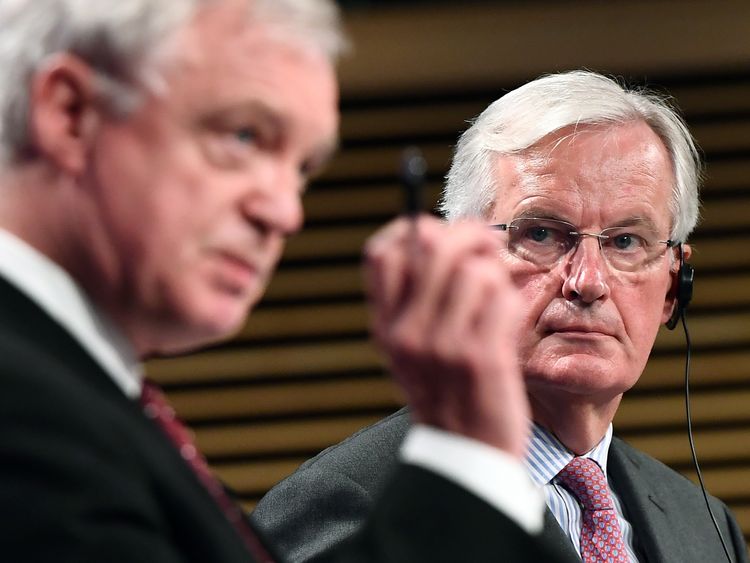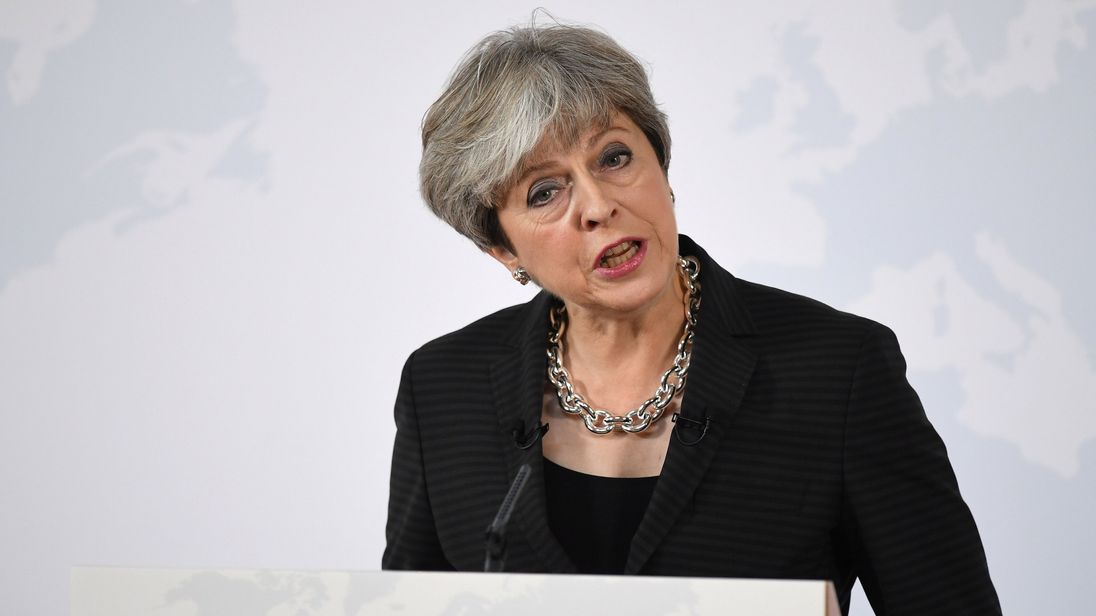 EU says no 'sufficient progress' made in Brexit talks
EU says no 'sufficient progress' made in Brexit talks
The EU's chief Brexit negotiator has warned it could be "several months" before talks move on to discussions about trade.
Michel Barnier hailed a "new dynamic" to negotiations following Theresa May's speech in Florence last week.But, speaking in Brussels following the latest round of Brexit negotiations, the European Commission official told Brexit Secretary David Davis there is yet to be "sufficient progress" on key withdrawal issues.
"We will need several weeks, even several months, to be able to see 'sufficient progress' on the principles of this orderly departure," Mr Barnier said.
The remaining 27 EU member states have demanded "sufficient progress" be reached on three issues - Britain's possible exit payment, the Northern Ireland border and EU citizens' rights - before negotiations can turn to discussions on a future UK-EU trading relationship.
Mrs May had hoped to breach an impasse on Brexit with her Florence speech, in which she made a commitment on filling an EU budget blackhole and offered new guarantees for EU nationals in the UK.
 David Davis and Michel Barnier both admitted 'differences' remain
David Davis and Michel Barnier both admitted 'differences' remain
However, despite praising a "constructive week" for Brexit talks as well as the Prime Minister's intervention, Mr Barnier signalled he will not yet be recommending EU leaders advance negotiations to their next phase.
He said: "We managed to create clarity on some points. On others, however, more work remains to be done and we are not there yet."
At their joint press conference, an "optimistic" Mr Davis claimed "considerable progress" had been made "on the issues that matter".
But he echoed Mr Barnier in conceding there "remain some points where further discussion and pragmatism will be required to reach agreement".
"It is true that there are differences of opinion," he added.
"But with the continued diligence and creativity of our teams, I am confident we can resolve these."

The PM's Brexit speech highlights
A major sticking point remains over the future role of the European Court of Justice (ECJ), which Mr Barnier suggested should be "indispensable" in ensuring the "consistency" of rights of EU citizens living in the UK.
But Mr Davis warned: "The UK has been clear that, as a third country outside of the EU, it would not be right for this role to be performed by the European Court of Justice."
In her Florence speech, the Prime Minister assured EU member states they will not have to pay more during the bloc's current budget period as a result of the UK's withdrawal, opening up the possibility of Britain handing over €20bn (£17.6bn) after Brexit.
Calling for more clarity on what Britain was committing to, Mr Barnier said: "For the EU, the only way to reach sufficient progress is that all commitments undertaken by the 28 are honoured by the 28."
The next round of Brexit negotiations will begin on 9 October.
If Mr Barnier agrees "sufficient progress" has been made between the two sides then, he could recommend EU leaders agree move talks on to their next phase when they meet for a European Council summit on 19 October.
Labour's shadow Brexit secretary Sir Keir Starmer said: "Any movement towards breaking the deadlock in Brexit negotiations is welcome, but the reality is that this should have happened months ago.
"Instead, the summer has been wasted by Cabinet infighting and the Prime Minister's inflexibility on key issues such as the European Court of Justice.
"It looks highly likely that the October deadline for concluding the first phase of talks will be missed."


Post a Comment